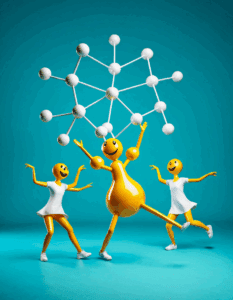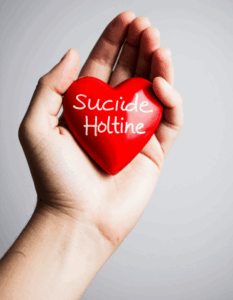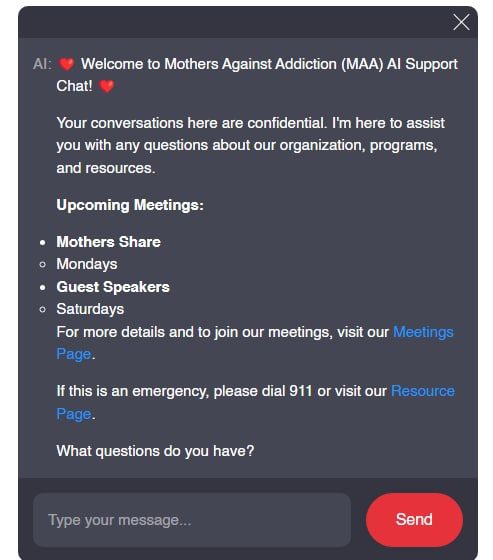As society becomes increasingly accepting of marijuana, shedding the stigma once associated with it, there’s a critical aspect we need to discuss: weed withdrawal. Many individuals who regularly smoked weed can find it tough to stop. For those grappling with weed addiction, understanding withdrawal symptoms is essential. This knowledge arms not only users but also their loved ones with insight into the painful journey of quitting.
Symptoms from weed withdrawal can be surprising, even shocking! As a community, we must embrace this knowledge to support users and their families. Read on as we explore the key symptoms of weed withdrawal, giving voice to the struggles countless parents face with their children battling addiction. For those navigating this difficult path, know that you’re not alone. Organizations like Mothers Against Addiction provide resources and support for families struggling with these challenges.

Top 7 Surprising Weed Withdrawal Symptoms
1. Changes in Appetite and Weight Loss
While many folks associate smoking weed with the “munchies,” withdrawal flips expectations upside down. Sudden decreases in appetite can lead to noticeable weight loss, a shocking change for those who once relied on marijuana to boost their hunger. University of Massachusetts Medical School research revealed that this flip side of weed withdrawal can cause distress and concern, particularly among parents observing their children’s struggles during the quitting phase.
2. Extreme Nausea and Stomach Discomfort
Surprisingly, some encounter extreme nausea when attempting to quit. A 2022 study published in Addiction Biology indicated that nearly 30% of participants in a cessation program reported severe stomach issues during withdrawal. For many, this symptom can be more than just uncomfortable—it can be downright debilitating, steering them toward a potential relapse.
3. Anxiety and Panic Attacks
You might think quitting would bring relief, but that’s often not the case. For many who regularly used marijuana, withdrawal can amplify anxiety and panic attacks. It’s staggering to note that according to a study in the Journal of Affective Disorders, up to 50% of individuals experienced heightened anxiety levels within the first week of stopping. This alarming statistic highlights the need for families to patiently support their loved ones during this challenging time.
4. Insomnia: A Sleepless Night’s Impact
While some individuals rely on smoking weed to catch some Z’s, withdrawal can lead to a surprisingly harsh bout of insomnia. Disrupted sleep patterns can emerge, causing fatigue and irritability. The National Sleep Foundation found that individuals without their nightly joint often experience vivid dreams or nightmares. Understanding these symptoms may foster compassion among parents who fear for their children’s well-being.
5. Mood Swings and Irritability
Who knew quitting could unleash such a whirlwind of emotions? During withdrawal, individuals often face mood swings ranging from irritability to bouts of depression. This emotional rollercoaster can sometimes be overlooked but is vital for support systems to recognize. Studies highlight that mood disturbances may last weeks, making emotional support critical in preventing relapse.
6. Sweating and Hot Flashes
We often associate withdrawal with emotional or psychological symptoms, but there are also physical ones that can be equally surprising. Excessive sweating and hot flashes may occur as the body recalibrates itself after stopping cannabis. This adjustment can be shocking to those not forewarned, and research published in The Journal of Clinical Psychiatry underscores that these symptoms stem from shifts in how one’s body manages temperature post-cannabis use.
7. Cravings: The Constant Pull
Let’s not forget about cravings. As anyone recovering from addiction knows, the fight against cravings can feel relentless. This sensation mirrors what those recovering from alcohol addiction experience; it’s a constant battle within oneself. A study from the National Institute on Drug Abuse discovered that psychological cravings can persist for months after quitting. It emphasizes the need for steady support systems during this challenging fight.

The Role of Support Systems: Joining Marijuana Anonymous
While the journey to recovery from weed addiction is multifaceted, engaging with others who understand those struggles can be a game-changer. Support groups like Marijuana Anonymous offer invaluable platforms for sharing experiences and receiving guidance. When individuals connect with communities who truly understand withdrawal’s challenges, they often find the strength to push through some of those symptoms we discussed above, allowing a sense of camaraderie to guide them toward sobriety.
Final Thoughts: Facing Withdrawal as a Collective Challenge
Understanding weed withdrawal symptoms isn’t just about the lost high; it’s about acknowledging the human experience behind these struggles. As perceptions of marijuana shift, it’s time to grasp the full complexities of quitting. By shedding light on these symptoms, we foster empathy and understanding in our communities. As parents navigate these challenges with their children, it’s essential to remember that no one has to walk this difficult path alone. Organizations like Mothers Against Addiction serve as invaluable support resources, reminding us all that solidarity and informed discussions create a nurturing environment for recovery.
In the face of these challenges, let’s surround ourselves and our loved ones with compassion, understanding, and resilience. With support, those coping with weed withdrawal can find healing and hope in what might seem like a daunting journey. Let’s work collectively to break the stigma of addiction and advocate for a brighter future for those battling these tough experiences.
Weed Withdrawal Symptoms You Didn’t Expect
Understanding Weed Withdrawal
Weed withdrawal isn’t just a stroll in the park; it can be surprisingly intense for many. While you might think it’s all about cravings, there’s a whole lot more. Did you know that around 9% of people who try cannabis end up developing a dependence? The figure rises to 17% for those who start in their teens! This highlights the importance of awareness, especially for young users. If somebody struggles with major depressive disorder treatments, recognizing weed withdrawal can be an essential part of recovery.
Surprisingly enough, withdrawal can lead to issues beyond physical cravings. Many users report feelings akin to manic depressive disorder—mood swings and anxiety can spike dramatically. Imagine feeling the urge to play video games but also dealing with overwhelming emotional shifts—like those wild fortnite memes we all chuckle at, but much less fun!
The Hidden Symptoms
What about the other symptoms? Alongside anxiety and irritability, insomnia can seriously mess with your sleep cycle. Sleep disturbances aren’t merely annoying; they may echo what someone faces with phone addiction where constant notifications keep them from a good night’s rest. For some, the restless nights during weed withdrawal can lead to an overwhelming need to adjust their schedules entirely.
Another interesting tidbit? Physical symptoms like headaches and loss of appetite often accompany withdrawal. Those experiencing it might find themselves feeling lost, much like someone trying to navigate abseiling for the first time. You might climb out of your comfort zone only to discover the steep drop you’re balancing on! And much like those who grapple with can alcohol dependence, recognizing these withdrawal symptoms can often lead to a healthier path forward.
Long-Term Effects to Keep in Mind
Remember, weed withdrawal isn’t just a few tough days; lingering effects can shape life for months post-use. If you’re curious about the long-term emotional toll, it’s worth diving into how addiction can influence mental health further. Interestingly, treatments such as those common in necu rehab programs address both physical dependency and underlying emotional issues.
Ultimately, while understanding weed withdrawal symptoms is a bit daunting, knowledge really is power. Just as thinjen helps folks slice through the clutter of misinformation, being aware of what withdrawal looks like can make all the difference. By openly discussing these issues, we can support one another in moving toward healthier lives.





























